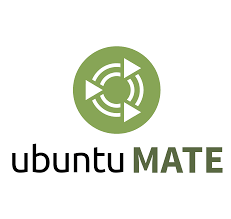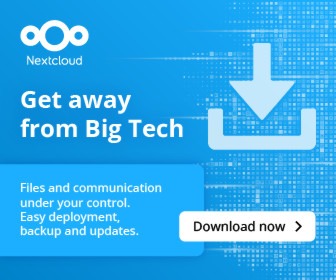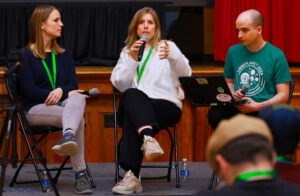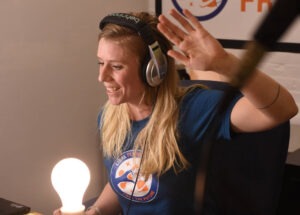The FOSS Force Interview
Recently, I had the privilege to sit down and interview Martin Wimpress, who among other things is the project lead for Ubuntu MATE. One reason I interviewed him was because I wanted to see what he’d have to say about his work with Ubuntu MATE and the Raspberry Pi, as well as to get a gleaning of his overall thoughts on free and open source software. As you will discover, Wimpress is definitely not a person who’s short on thoughts, or shy about expressing them.
 The other reason for this interview, perhaps the main reason, is because from one developer to another, I look up to Martin quite a bit and admire him for the things he is accomplishing and doing.
The other reason for this interview, perhaps the main reason, is because from one developer to another, I look up to Martin quite a bit and admire him for the things he is accomplishing and doing.
Anyway, I hope you enjoy the interview as much as I enjoyed doing it.
Carter: Tell us how our readers would know of you, Martin.
Wimpress: My background is in systems administration and information security. I’ve been a software developer in the past professionally, a Linux user since 1995 and I’ve also contributed to a multitude of open source projects over the years. In the past, I used to focus my spare time on PHP web applications and frameworks, but recently I’ve become more active in the open source community with my own projects, which are now mostly based around the Linux desktop. These days, most of my open source contribution is as the project lead for Ubuntu MATE, developer and community manager for MATE Desktop, Debian package maintainer, Ubuntu contributor, Ubuntu Release Team volunteer and Arch Linux TU (Trusted User).
Carter: What does FOSS mean to you?
Wimpress: The central value for me is that it’s all about collaboration. You can get into big debates about the licenses and the freedoms those licenses provide, but what they enable, and their most powerful attribute, is collaboration and that’s what I love about FOSS.
Carter: How do you feel that the Raspberry Pi helps out FOSS?
Wimpress: I think it’s expanded the adoption of Linux into a group of people that may not have been using Linux before and not necessarily for the educational stuff. I think a lot of people got their first Raspberry Pis because they found out that they could turn them into small home theater media players, and for not much money they could create something that played their movie files. I don’t really care how people come to get involved in using Linux, it’s just important that people are attracted to the platform. I think that early on, the Raspberry Pi was obviously adopted by the makers who were probably already using Linux, but we then found another audience of people who had this cheap device that they could use to do things which were probably too expensive to do on traditional PC hardware and proprietary systems. The Raspberry Pi Foundation have also totally delivered on their commitment to serve the educational market, which you can really see over here in the U.K.

Carter: What was your reasoning for creating Ubuntu MATE for the Raspberry Pi?
Wimpress: I’ve got some original Pis and I used them to build the MATE desktop on ARM v6 back when I was a new Arch Linux TU. I wanted to make sure MATE built on the ARM hardware, so that when I introduced the MATE packages to the official Arch Linux repository they would build successfully for the downstream Arch Linux ARM project. By doing that, I actually had an Arch Linux MATE desktop environment running on the original Raspberry Pi and it was relatively usable, but not quite good enough to be a real desktop replacement. When the Raspberry Pi 2 came along, I thought “yeah this could really drive a decent desktop OS.” So really, Ubuntu MATE is the completion of this Arch Linux project that I started years ago.
Carter: There’s been a lot of talk as of late about the Linux kernel development community. Can you tell me the steps you have taken to make sure that the Ubuntu MATE development community doesn’t go down that same road?
Wimpress: If you want to have a platform sustain and grow, you have to be welcoming and professional with people in that community. You do see some people in Linux-based distro communities being curt, rude and impolite in online forums. I sometimes wonder if this is a human failing of people being anonymous and separated by a screen and the Internet, or is this cultural issue that has lead to people emulating the poor behavior they’ve heard about from stories of how the Linux kernel community works and the way things have been said and done?
We are not rude or impolite in the Ubuntu MATE team. I have deliberately set out to have an online tone for Ubuntu MATE that is friendly and courteous. I make heavy use of emoticons to convey the meaning behind the words that I write. This has rubbed off on the whole Ubuntu MATE community. As the leader of the community, I find that if you are consistent and have a defined way of communicating, then the rest of the community will echo that behavior and as a result the Ubuntu MATE community is a group of very friendly and helpful people. I love it when I log on to the forums and I see people have replied to problems or issues with positive helpful advice. I’m very proud of the fact that the Ubuntu MATE community is such a friendly and helpful place.
Carter: What are you hoping to see in the future with Raspberry Pi and FOSS?
Wimpress: I would like to see the Raspberry Pi more widely used in the schools that are near me. You hear great stories of the Raspberry Pi being used by some real pioneers in education, like Cat Lamin, and I would like to see more of that. Consider how successful the Raspberry Pi foundation has been since they originally set out to sell 10k devices and now they are fast approaching 7 million devices. They have been hugely successful and I want to see them continue to be hugely successful. Maybe use the Maker market to continue to make devices that are attractive to the Makers to help subsidize the Raspberry Pi Foundations educational endeavors. I would like to see the Raspberry Pi Foundation grow and become profitable enough that they can have ambassadors that can go out to the local education authorities and educate teachers about the Raspberry Pi and provide them with equipment, syllabuses, and material. I know they are doing some of this already, but I would like to see this be a far more widely adopted program. My hope is that all school children in the U.K. will one day be educated with the Raspberry Pi, Linux and Python, which would be just splendid.
For me personally, I would love to see a DDX driver for the VideoCore GPU on the Raspberry Pi. As a desktop OS, this would help to better unlock the full potential of the chip and the Raspberry Pi would become an even more viable desktop replacement platform. I’m really excited to see this work completed because the Raspberry Pi Foundation have put in a lot of effort in to getting this accomplished.
Carter: From what I see and read, I feel that the Raspberry Pi is more embraced in the U.K. then it is in the U.S. Is it not the case that every school in the U.K. has a Raspberry Pi class?
Wimpress: Not yet, but it is certainly getting there. The Raspberry Pi is almost a household name, but not quite. Right now, you won’t find a Raspberry Pi in every school but that day is certainly coming. Just to frame this, my daughter is in Junior (4 – 11 years) school so I don’t how widespread the use of Raspberry Pi is in Secondary school (12 – 16 years). I know that the likes of Code Club, which is a volunteer effort for after school education using Raspberry Pi to teach programing with Scratch and Python, has said they don’t recommend teaching programming to kids under the age of 9. This is because they don’t have the requisite numeracy and literacy skills. Consequently, I don’t know if I’m not seeing enough Raspberry Pi stuff at my daughter’s school because most of them are under the age of nine.
Carter: Tell me about a time that FOSS saved the day on a project or helped you to achieve your goal.
Wimpress: Oh my goodness, time and time again…time and time again. Early on, through my education, I became a sponsored student with a company called ICL. While working for them, I was introduced to UNIX operating-systems and I remember being really blown away with UNIX. You could have multiple applications running at the same time, something that was very difficult to achieve with DOS. What hooked me on Linux was that the first time I got it installed on a computer at home, I was just “Wow!”, this is just like the stuff I have at work. As far as I was concerned, this was a professional UNIX environment. So that was the thing that really hooked me. I couldn’t have afforded to buy SCO UNIX back then so Linux was a way to take my PC and run that UNIX system that I was familiar with and that I felt was superior to DOS. Linux was a real “labor of love” back then, but it was the first big win for me and FOSS.
Carter: What do you see as the best thing about FOSS and the FOSS community?
Wimpress: For me, the ability to collaborate is the best thing about FOSS and the FOSS community. When asked this question, a lot of people talk about being able to look at the source code, test it and verify it it has no serious bugs or vulnerabilities. But what I love most is finding some open source software, using it, discovering it doesn’t quite do what I want it to do, then modifying it, sending those changes back to the author and seeing them incorporated in future releases. It’s that freedom, the power to collaborate, and constantly improve the ecosystem that I believe is FOSS’s most powerful attribute.
Carter: Besides Ubuntu MATE, do you have any other plans to contribute to the Raspberry Pi community?
Wimpress: I would love to be doing more then I already am and also hope to start running a Code Club locally in 2016. I definitely want to continue making Ubuntu MATE for the Raspberry Pi 2. The Raspberry Pi 2 image is extremely popular and being downloaded about 30,000 times per month, with the other architectures combined being downloaded about 48,000 per month. I also produce a generic ARMv7 image that people are using on Banana Pi and O-DROID. The default OS for O-DROID is Ubuntu running the MATE desktop. It’s not quite Ubuntu MATE, but it is Ubuntu and the MATE desktop so that’s very pleasing.
I would love to work for the Raspberry Pi Foundation. I mean, what a great job that would be, building Raspbian and Ubuntu MATE on a full time basis. That’s my idea of the dream job. I do what I can in my spare time now, but it would be fantastic to work for the Raspberry Pi Foundation is to as their full time OS architect.
Help keep FOSS Force strong. If you like this article, become a subscriber.
In addition to hosting a Raspberry Pi meetup in Washington D.C., Isaac Carter is a co-host on mintCast. He’s also a software engineer who enjoys working with Java, JavaScript, and GNU/Linux. When he’s not coding, you can find him reading on any number of subjects or on the golf course.








Among Martin Wimpress’ other activities he is a regular on the Ubuntu Podcast (formerly the Ubuntu UK Podcast). He’s as enthusiastic and polite about Linux, MATE Desktop, and free software on the podcast as he is in interviews.
I installed Ubuntu Mate on my RPi2 yesterday.
It is -The-Best- Linux distro that I have ever used.
Mr Wimpress is a genius and U/Mate makes the RPi both useful and stylish.
No mean feat.
Bravo, Mr Wimpress.